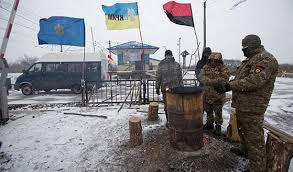Strikingly, none of the accused—the main actors in the drama—protested or tried to clear their names; instead they helpfully implicated themselves in fantastical crimes. Some were rewarded for their convincing performances. Leonid Ramzin, a professor of engineering, was cast as a leader of the imaginary conspiracy, but his death sentence was commuted to ten years in prison. He was amnestied in 1936 and later showered with awards. Meanwhile, the prosecutor, Nikolai Krylenko, was himself arrested in 1937 during the Great Terror. He falsely confessed, too—and was executed soon afterwards. By then, the era of co-productions with Stalin’s prisoners was over.

Russia and separatist Ukraine are not the Soviet Union, but justice is still suborned to theatre, and facts to interests. Mr Iampolski argues that in this nihilistic climate, “inscription”—the act of committing things to paper or the screen—becomes the main form of legitimacy. In this way propaganda, including Russia’s demonisation of Ukraine, makes falsehoods credible. Yet even (or especially) now, scrupulous filmmakers can expose lies instead of spreading them, as Mr Loznitsa shows.
译文由可可原创,仅供学习交流使用,未经许可请勿转载。












